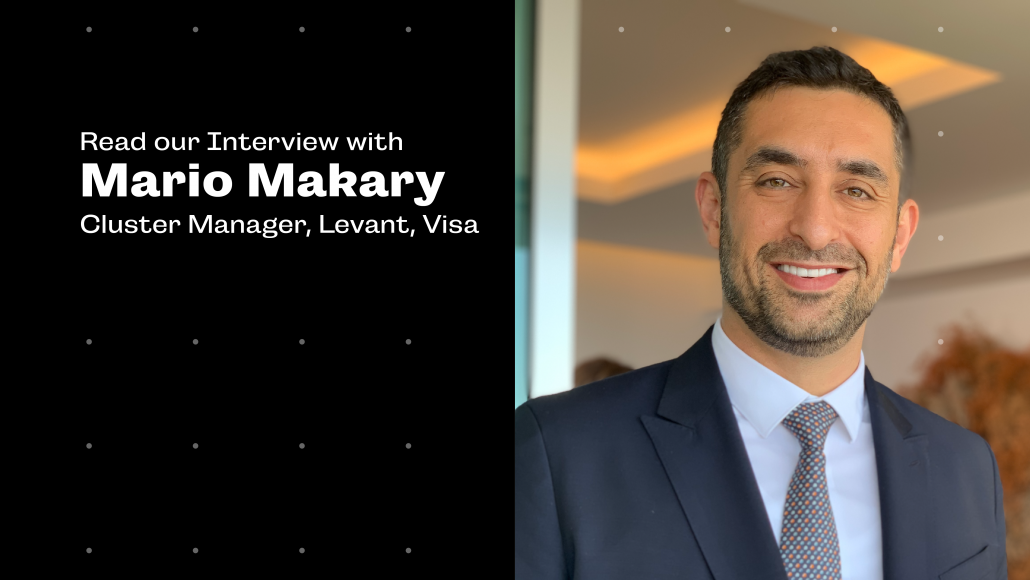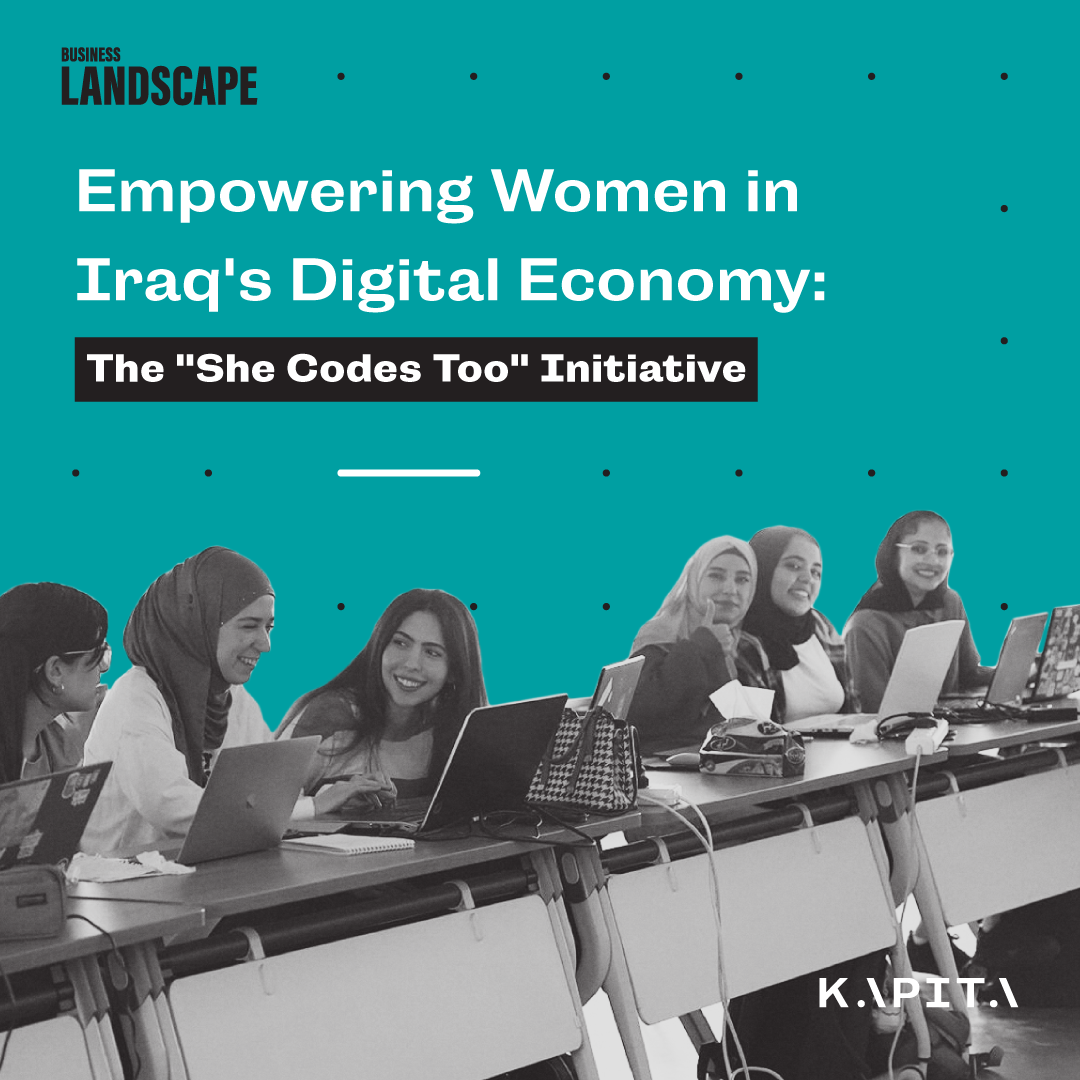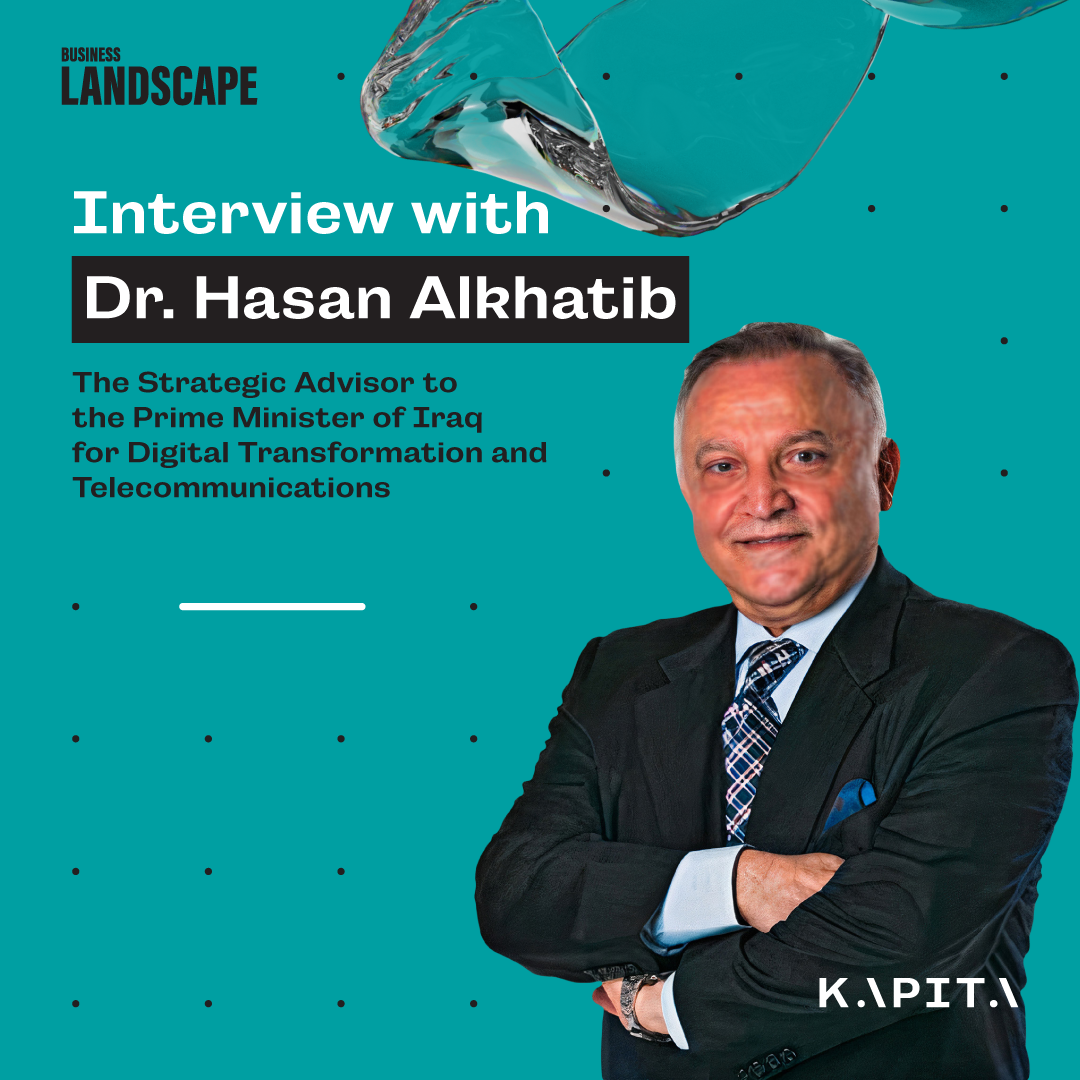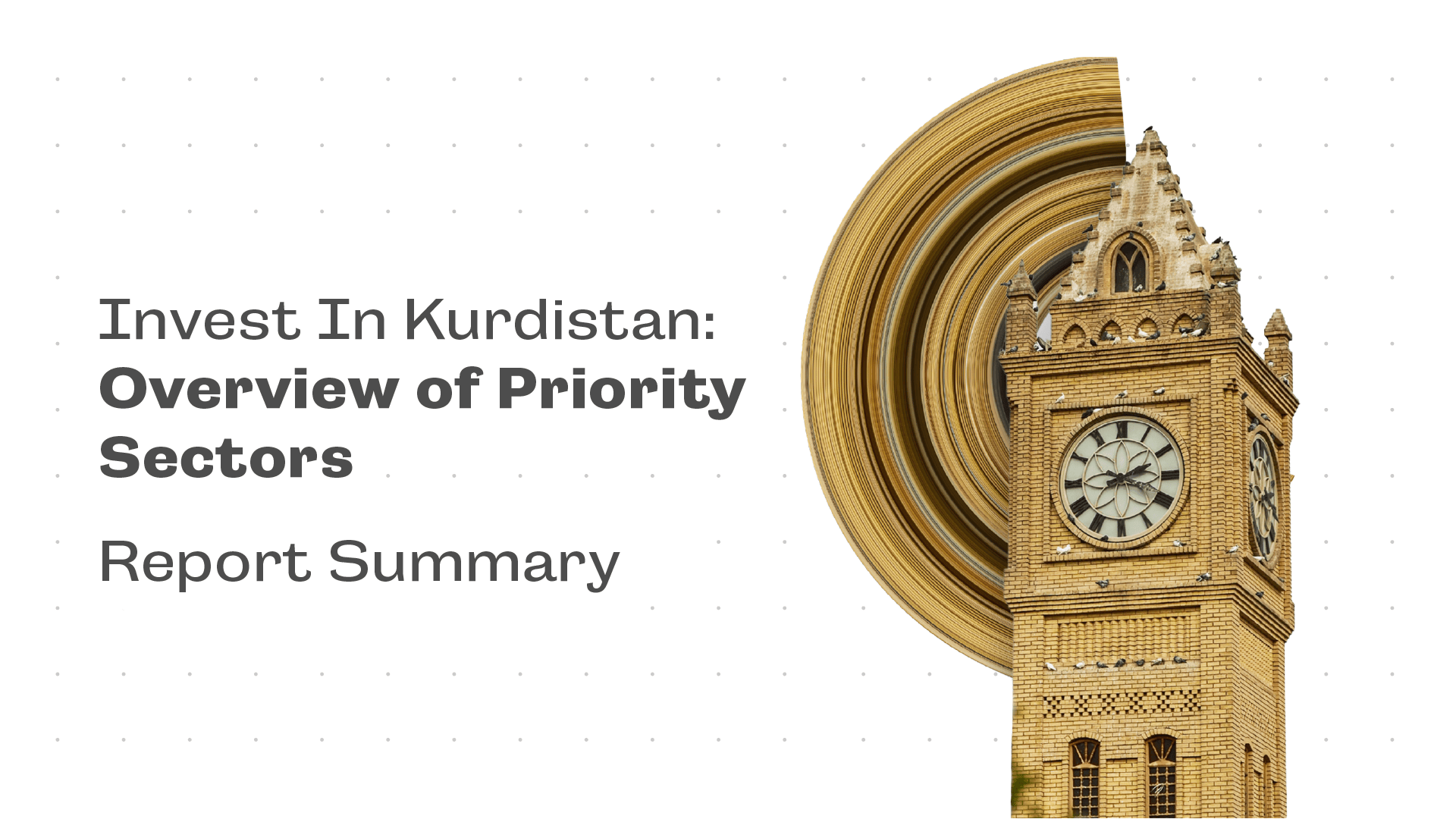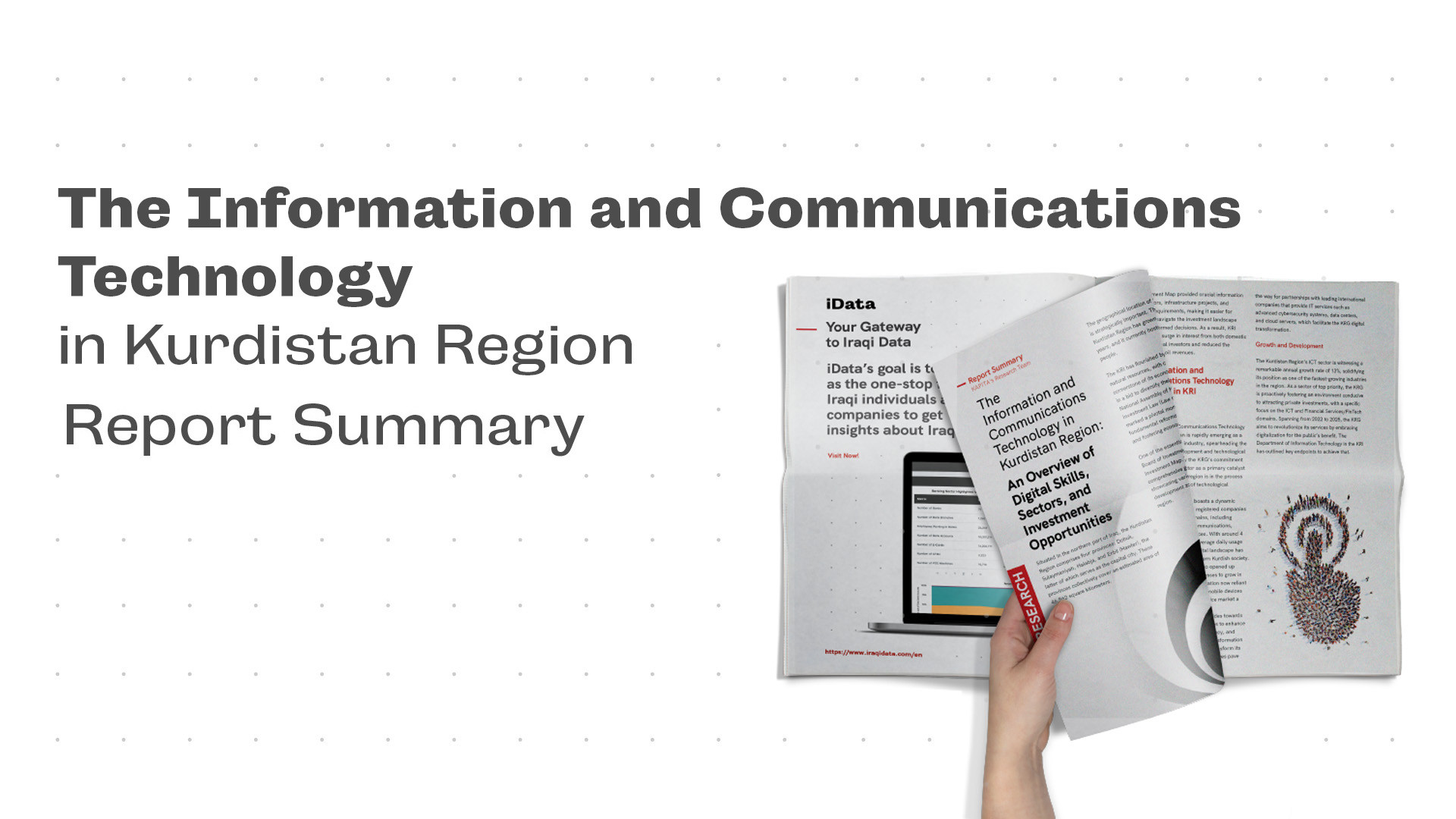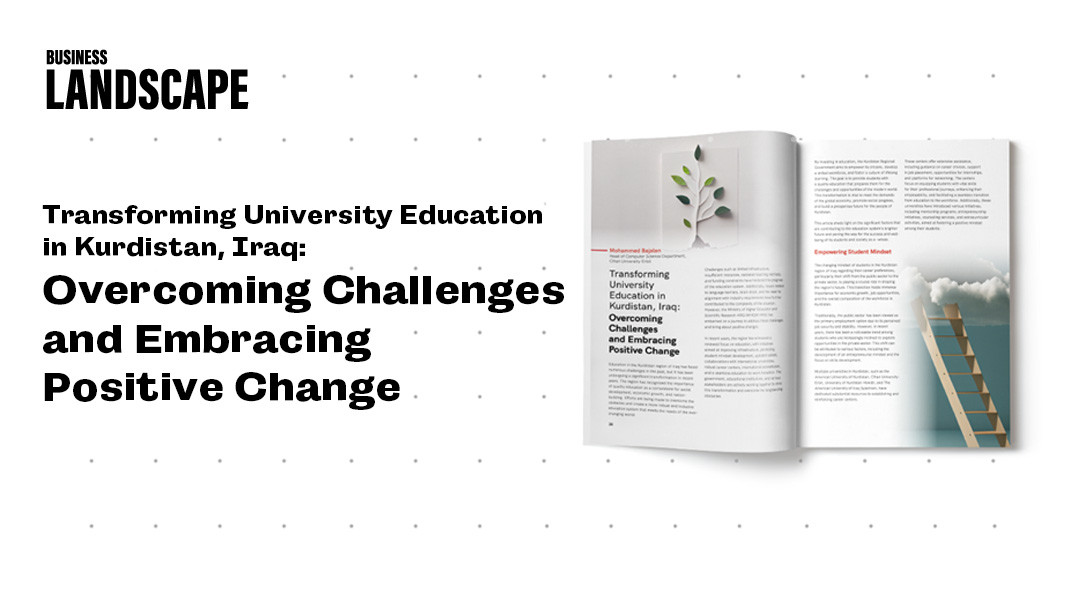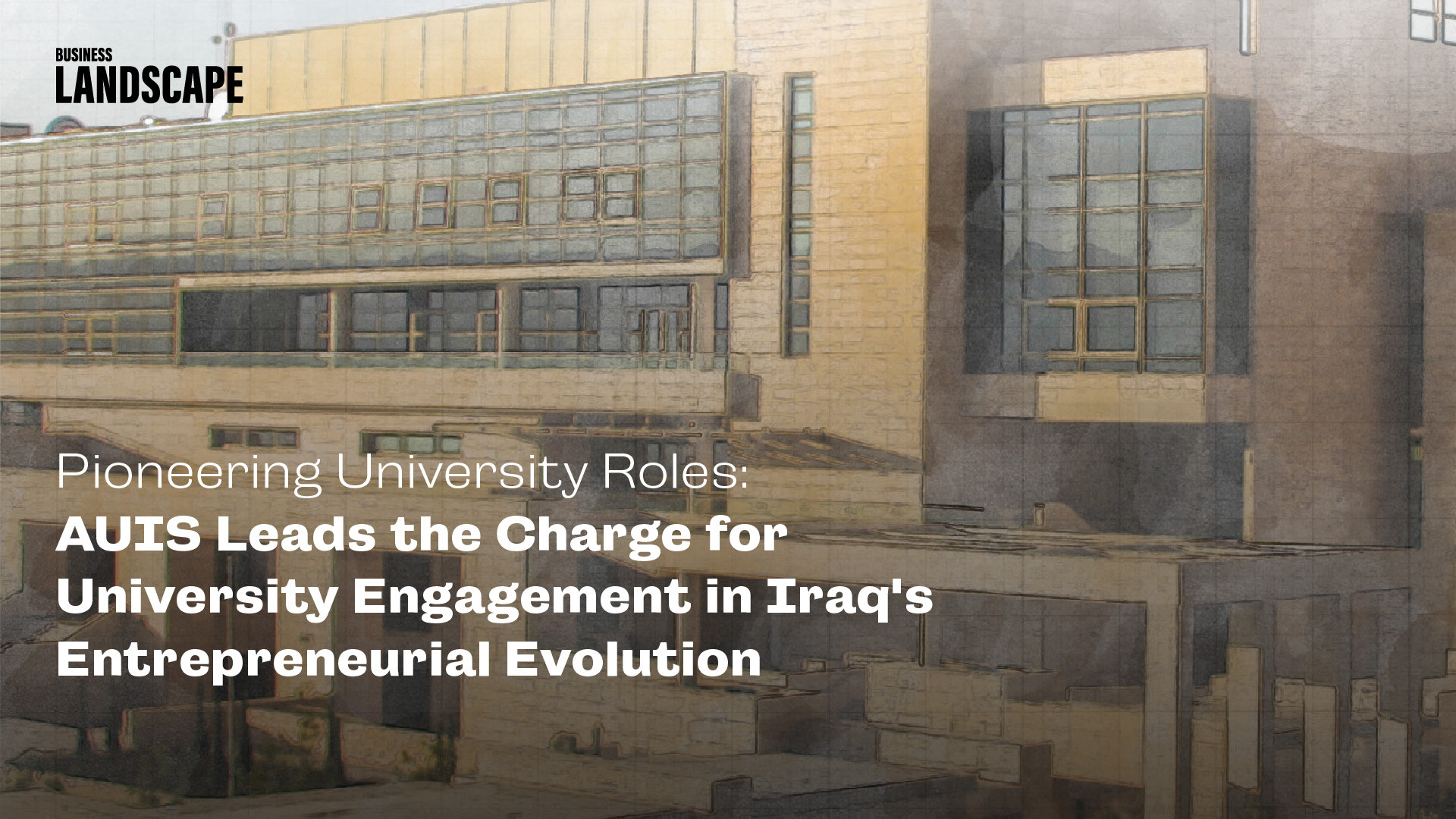Business LANDSCAPE Interview
Mario Makary
Cluster Manager, Levant, Visa
Mario Makary is senior director and cluster manager at Visa in Levant, which covers Iraq, Lebanon, Jordan, Yemen, and Palestine. Makary has worked in the payments industry for two decades with local, regional, and global payments and banking institutions before joining Visa in 2014.
Makary’s decades-long expertise spans customer relationships, acquiring, issuing, fraud monitoring, product development, loyalty programs management and development, and card sales.
In this interview, he talks about the digital payments landscape in Iraq, rapid digital transformation and how we can further support it, the potential of fintech, and Visa’s initiatives and strategies to ensure financial inclusion and a safe transition to a cashless society.
We would love to know more about you and your background.
I have been working in the payments industry for over 20 years in the Levant region with local, regional, and international companies. I joined Visa nine years ago; in my current role, I manage our operations in the Levant region, covering Lebanon, Jordan, Iraq, Yemen, and Palestine. I am a proud husband and father of three.
What are Visa’s thoughts on payment systems in Iraq, and how is Visa contributing to the digital transformation in the Iraqi ecosystem?
It is an exciting time for us to be in Iraq, working with the Central Bank and Iraqi payments industry players to transform the ecosystem. In such markets, where nearly 80% of the population is still unbanked or does not have access to digital payments, this creates a great opportunity to increase literacy, foster financial inclusion and encourage economic growth. Today, in Iraq, individuals - even bank employees - heavily rely on using cash, which is inadequate for building the economy because it does not create transparency and growth when it comes to GDP.
At Visa, our goal is to be the best way to pay and be paid for everyone, everywhere, in order to achieve this goal, Visa partners with all key players and stakeholders within the ecosystem to provide access to digital payments. Most importantly, our goals support the government’s efforts to achieve their financial inclusion vision, aiming at supporting businesses and consumers alike in reaping the benefits of seamless, secure, and convenient financial services. We have been working for the past few years with the Central Bank of Iraq and key players in the industry to promote financial literacy and penetration in terms of the tools and the means for people to engage in commerce. As a global leader in payment technology, we have been introducing new payment and acceptance methods to drive ecosystem growth through our partnerships with governments, financial institutions, fintech, and mobile network operators (MNOs) in the region.
In the long term, we expect to have around 25 million people using digital payments in Iraq. We continue to focus on enabling market players to build infrastructure and launch solutions that can cater to the needs of the underbanked. Our focus remains to help enable Iraq’s transition to a cashless economy.
Are there currently any policies in Iraq that supported your efforts for financial inclusion and digital transformation?
The Iraqi government has been working towards driving nationwide transformation to achieve Iraq’s Vision 2030’s diversified economic growth. back in January 2023, the Prime Minister's Office released a mandate to use Point-Of-Sale (POS) in all governmental and non-governmental institutions, which will boost and reinforce our efforts in Iraq.
Over the past few years, we have been working with the Central Bank of Iraq to help formulate regulations and policies that support the ecosystem. On that front, the Central Bank has issued regulations enabling many companies to use eKYC and digital issuance. Iraq has seen the implementation of solutions that are key to driving market growth, all of which could not have been possible without the support of the Central Bank and current market regulations.
However, we believe there is still a lot of room for collaboration. Visa’s regional president Andrew Torre visited Iraq for the first time, meeting with the Prime Minister and the Central Bank Governor, and reiterated Visa’s commitment to supporting the latest measures that Iraq is taking to accelerate payments digitization in line with the decision approved by the Council of Minister earlier in the year to ensure POS and card acceptance infrastructure is in place across several economic segments by June 1st, 2023.
We maintain very close relationships with the Central Bank and all influential players in the ecosystem to help accelerate digital transformation.
Who are the main stakeholders, besides the Central Bank, who can support the shift toward a cashless society?
The success of financial inclusion and digital transformation in Iraq depends on collective responsibility. Even if the Central Bank creates advanced regulations, equity players in the ecosystem, such as issuers, payment service providers, acquirers, and Visa, must also play their part in implementing them. There have been significant advancements in developing the ecosystem, with Iraq being one of the first markets in the region to issue virtual cards within an app before cardholders receive the physical version. Multi-currency cards linked to a wallet and digital onboarding have also been introduced to the market.
The market's evolution has been robust, and the opportunity for growth remains substantial, but collaboration is necessary for success.
The reliance on cash persists even though many people in Iraq are now banked, but they are not utilizing their cards for any transactions other than money withdrawal. How are you addressing this challenge, and do you think this provides the potential for the Fintech scene to come up with solutions?
I could not agree more. Today, as you mentioned, we see banked segments, but they are not receiving the full benefits and convenience of cashless payments. This is where I believe education is key because people, either by choice or obligation, have had to come into the banking system. We have seen this, for example, with the Central Bank mandating that salaries should be paid through bank accounts. A lot of people entered the banking ecosystem, but not all of them make the best of that relationship. This is where Visa comes into play - to help educate cardholders and ecosystem players on the benefits of moving from cash to digital.
I think one of the milestones we have achieved was the educational campaign we launched in partnership with the Central Bank in March 2021. The campaign posed the question, asking the masses: "what are you waiting for?" It was a fun, educational campaign aimed at helping people understand the benefits of moving from cash to digital. As we move forward, we continue to educate people and invest in local partnerships and campaigns to help everyone reap the benefits of using cards rather than withdrawing cash and doing things the old way.
In our recent meeting with the Governor of the Central Bank, Visa’s regional president confirmed Visa’s is committed to providing innovative financial solutions to the underserved communities and unbanked populations in Iraq. We aim to leverage Visa’s world-class payments technology to advance the country’s financial ecosystem, working closely with the Central Bank of Iraq and other key players to accelerate digital transformation through innovative solutions and programs that support financial inclusion.
I think that fintech has also played a significant role in transforming the banking system across the globe, including in Iraq. During the pandemic and after, we have seen how they played a crucial role. Today, many Iraqi payment service providers are fintechs. By launching innovative services such as multi-currency applications, fintechs are helping to reshape the consumer experience and boost financial access for people in Iraq.
We must continue to prioritize education as a means of driving progress. As a trusted partner, Visa is also keen on connecting local, regional, and international players on the fintech front to bring the best value, services, products, and customer experiences to Iraqi consumers.
Could you tell us about the partnerships or campaigns that Visa is conducting in the Iraqi market, such as your recent partnership with Miswag?
Over the past two years, we have been extremely active in the Iraqi market. As mentioned, we started with an educational campaign, which we launched in partnership with the Central Bank across Iraq and Kurdistan, where we targeted individuals with Accounts Receivable Conversions (ARCs) and merchants with POS, with the aim was to activating the ecosystem.
Additionally, we ran a usage activation campaign to enable people to see how rewarding it was to use cards. We have had campaigns with local partners such as Toters and international partners like Meta, where we helped the Iraqi people understand the benefits of using a card and benefit from it.
The collaboration with Miswag was three-tier, with the aim of targeting shoppers during Black Friday and Cyber Monday and then running a campaign over a period of four months where they get discounts and cashback every Tuesday. What was amazing to see was the appetite of the market when it came to campaigns on Black Friday.
The campaign was a huge success; before Black Friday, electronic payments on Miswag used to represent almost 2% of the transactions, and 98% was cash on delivery. On Black Friday alone, electronic payments jumped to 11% of overall sales, where Visa represented 10% of the payment scheme used on Miswag. Surprisingly, the uplift was not only in the conversion from cash to card but also in spending and the number of orders. We continue to explore collaboration opportunities that can help us driving cash conversion.
What are the advantages for a company like Miswag or any other company or startup operating the Iraqi ecosystem when customers shift to cards instead of cash?
Cash is difficult to manage and does not add value. In the case of Miswag, where people used to shop using cash on delivery, they only received what they paid for. However, when they used their cards, they were getting what they paid for, and cashback, discounts, or additional value, plus the convenience and speed of using cards.
Another setback of using cash on delivery is not having enough cash on hand to pay. Among other benefits, moving from cash to cards helps you track your spending. It also helps economies thrive by eliminating tax evasion and bringing more money into the system, which creates bigger opportunities.
We all know that a lot of money sits outside of banks. However, when the money comes into the system from people opening accounts, depositing in them, and then using their cards, it creates a healthy economic cycle. This, in turn, will help drive incremental value to the economy, with the added benefit of more services.
During the pandemic, when many enterprises had been put out of business, the ones who were open to accepting cards and shifted to e-commerce were able to survive. Accepting cards opens the horizon for businesses to have access to a wider customer base and go beyond geographic limitations.
The banking ecosystem still needs to catch up in terms of credit in the Iraqi market. Is Visa working on any initiatives to activate credit cards?
We see an appetite from players, which is in line with the Central Bank’s drive to help build the credit ecosystem in Iraq. We do have a few issuers who are already in the credit space; mainly, we see this coming from banks because of their ability to offer credit. We are excited to be working on this project and hope to see good results in the next 12 to 18 months. I can assure you this is an area where Visa, the Central Bank, and financial institutions have a lot of interest in.
Are there any strategies that Visa is implementing in order to keep its customer base secure?
As a trusted network and world leader in digital payments, we are working to remove barriers and connect more people to the global economy. Security remains a key challenge as users are wary of online fraud, especially in Iraq, where the infrastructure is still under development, and financial literacy levels are lower. However, Visa has pioneering security solutions that enable frictionless digital commerce. Today, if we zoom in on the Iraqi market, we have been working very closely with the Central Bank and the wider ecosystem. Our main priority is education; Visa has launched webinars, seminars, and in-house training on how to maintain a safe and secure ecosystem, best practices in place to safeguard cardholder data and cardholder transactions.
We have also been implementing Visa solutions that can help issuers and acquirers keep their businesses safe, such as Visa Advanced Authorization and Visa Risk Manager, a solution that leverages AI to monitor score transactions for safety. Furthermore, Visa Consumer Authentication Service delivers intelligence to reduce fraud and false declines while limiting friction for a better cardholder experience. On the back end, we have our team monitoring transactions to engage with acquirers and issuers whenever we see any potential threats.
At Visa, we are staying one step ahead of these increasingly sophisticated bad actors by taking a 360-degree approach to security based on AI and analytics that leverage one of the world’s largest and most sophisticated and secure data processing networks.
We have managed to keep fraud at historic lows, investing over $10 billion in the last five years in technology and innovation, focused on four key areas: Cutting-edge cybersecurity to combat increasingly sophisticated criminals, AI and advanced data analytics to reduce fraud and prevent it before it even happens, 3600 protection of consumers, businesses and the entire payments ecosystem, and advancing universal access to the secure movement of money and to the benefits inherent to the Visa brand.
